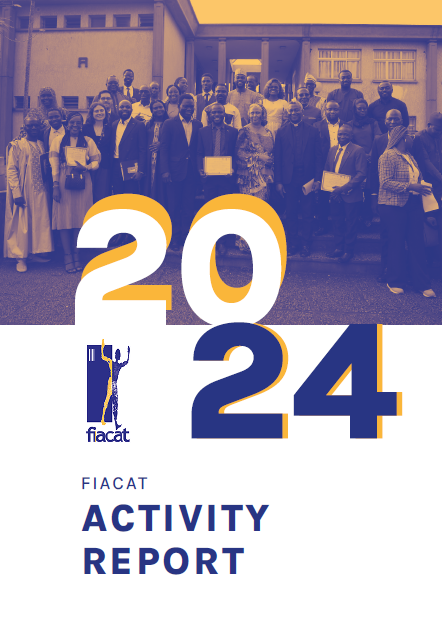
Supporting the Sustainable Development Goals (SDGs)

FIACAT’s action to promote the implementation of Sustainable Development Goals
The fight against the death penalty and the prohibition of torture intersect with many of the Sustainable Development Goals (SDGs) that FIACAT aims to promote in its work. The following are of particular relevance:
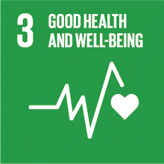
Credit: UNDP
Goal 3.4: By 2030, reduce by one third premature mortality from non-communicable diseases through prevention and treatment and promote mental health and well-being.
Conditions in overcrowded prisons do not conform to international standards and are often unsanitary and unhygienic. Such conditions promote the spread of communicable diseases. When combined with a lack or even absence of medical personnel, equipment and supplies within prison infirmaries, prison overcrowding can also result in deaths in detention. The fight against pre-trial detention may have a positive impact on the achievement of SDG 3.4, by combatting prison overcrowding and improving detention conditions in terms of health and hygiene.
The death penalty has also been subject to criticism on many occasions owing to its impact on both the mental and physical health of those sentenced to death. These prisoners are frequently isolated with only very limited access to outside space. Moreover, the impact of ‘death row phenomenon’, (‘the harmful effects of death row conditions, including exposure to extended periods of solitary confinement and the mental anxiety that prisoners experience whilst waiting for their death’ (1)) on the mental and physical health of those sentenced to death has been proven. A number of regional and international mechanisms for the promotion and protection of human rights have also defined this phenomenon as a form of torture or cruel, inhumane or degrading treatment which has all the expected consequences for the health of those sentenced.
Through the implementation of its programmes combatting abusive pre-trial detention, for the abolition of the death penalty or its advocacy for the implementation of recommendations by regional and international mechanisms promoting and protecting human rights, FIACAT insists on the observation of the Nelson Mandela Rules as a means of guaranteeing, among others, the good mental and physical health of prisoners and of limiting the number of premature deaths in detention.
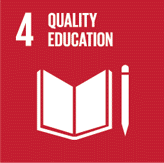
Credit: UNDP
Objective 4.7: By 2030, ensure that all learners acquire the knowledge and skills needed to promote sustainable development, including, among others, through education for sustainable development and sustainable lifestyles, human rights, gender equality, promotion of a culture of peace and non-violence, global citizenship and appreciation of cultural diversity and of culture’s contribution to sustainable development.
FIACAT is aware of the importance of human rights-related education and training for the prevention of human rights violations. For this reason, FIACAT includes training and/or awareness-raising activities on human rights in each of its actions and programmes. Thus, it organises various awareness-raising campaigns aimed at the general population, notably on World Day Against the Death Penalty (10 October) and International Day in Support of Victims of Torture (26 June). Moreover, as part of its programme aimed at abolishing the death penalty in Sub-Saharan Africa, FIACAT organises awareness-raising workshops for opinion makers as a means to then raise awareness among the general public about the abolition of the death penalty and the right to life. As part of its programme to combat abusive pre-trial detention, FIACAT and the ACATs concerned have initiated the project in each country by providing training aimed at civil society, the judicial administration and prison administration. This training focuses on international, regional and national texts on pre-trial detention and defending the absolute prohibition of torture and the rights to liberty and the security of person.
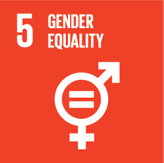
Credit: UNDP
Objective 5.1: End all forms of discrimination against all women and girls everywhere.
In general, in all the countries in which it operates, FIACAT pays close attention to the equal representation of the genders at workshops (among the participants and speakers), group work sessions, during the recruitment of coordinators and consultants (for example, referring lawyers) and in the formation of teams of volunteers for projects (for example prison visitors).
In countries where there is conflict, women are victims of discrimination and are more likely to be victims of torture or cruel, inhuman or degrading treatment or punishment due to their sex. In fact, in some countries where FIACAT operates women are the targets of ill treatment or are victims of rape which amount to acts of torture.
Women are also victims of discrimination when it comes to the imposition of the death penalty. On the one hand, the crimes for which they are sentenced to death often reflect the discrimination that women experience in society. Thus, most women sentenced to death for murder commit the crime within a context of domestic violence. Women may also face discrimination through the application of the death sentence on grounds of crimes against sexual morality. Furthermore, once sentenced to death, women are again subject to discrimination in detention. This is because the majority of prisons have been designed to accommodate men and are not suitable for the needs of women (2).
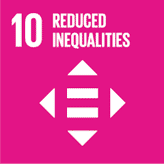
Credit: UNDP
Objective 10.3: Ensure equal opportunity and reduce inequalities of outcome, including by eliminating discriminatory laws, policies and practices and promoting appropriate legislation, policies and action in this regard.
People in detention are often observed to have come from the most deprived backgrounds with the lowest incomes. The abusive pre-trial detention project features in the implementation of SDG by ensuring that the rules surrounding pre-trial detention are strictly applied and respected in relation to all detainees, irrespective of their financial means.
Moreover, it is recognised that the death penalty is discriminatory and mainly impacts the poorer social classes and ethnic, racial, religious or sexual minorities. Social and economic inequality means that access to justice is restricted for those sentenced to death for several reasons: a defendant in this position will often lack not only the social, economic and cultural resources, but also the ability, to defend themselves and will often be marginalised on grounds of their social status. For this reason, the abolition of the death penalty would facilitate the fight against this type of discrimination by improving access to rights.
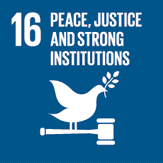
Credit: UNDP
Objective 16: Promote peaceful and inclusive societies for sustainable development, provide access to justice for all and build effective, accountable and inclusive institutions at all levels.
The issue of abusive pre-trial detention is above all a result of improper administration of justice. The aim of the project to combat this practice is to bring global improvements to judicial systems and enhance cooperation between judicial and prison administrations.
In general, the alternative reports produced by FIACAT and the ACATs serve to highlight the institutional difficulties which exist at the heart of the administration of justice. Meetings between FIACAT, the ACATs and the authorities also facilitate the discussion on these issues and the development of measures to address them.
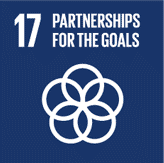
Credit: UNDP
Objective 17: Strengthen the means of implementation and revitalize the global partnership for sustainable development.
The success of FIACAT’s projects (both the programme on abusive pre-trial detention and the death penalty programme) relies on an effective working relationship between the authorities and civil society.
Collaboration between the judicial administration, prison administration and civil society is at the heart of the abusive pre-trial detention programme and this since the first training workshop which brought these groups together. Furthermore, the ACATS have regularly been in contact with these various actors, ahead of the project and throughout its implementation, in order to ensure their collaboration. By doing this the ACATs aim to make clear that the project’s aim is to work together to find solutions and facilitate the work of all parties, and not to highlight failures. As a way of establishing the partnership, working groups during workshops are set up in such a way that each body is represented in each working group. This has enabled the creation of the foundations for the partnership.
As regards the death penalty project, FIACAT and the ACATs meet regularly with the authorities to discuss the abolition of the death penalty. FIACAT and the ACATs also run activities specifically to influence parliamentarians in favour of the adoption of laws to abolish the death penalty. Ultimately, opinion makers (notably traditional and religious leaders and media chiefs) are key actors in this area and are involved in FIACAT’s and ACATs’ work on a regular basis.
(1) Dr Karen Harrison and Anouska Tamony, Death Row Phenomenon, Death Row Syndrome and Their Affect on Capital Cases in the US, Int.J. Criminology (2010).
(2) PRI and the Cornell Centre on the Death Penalty Worldwide, Prison conditions for women facing the death penalty, 2018



